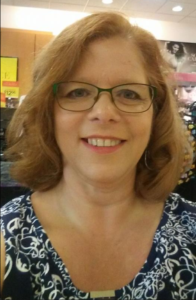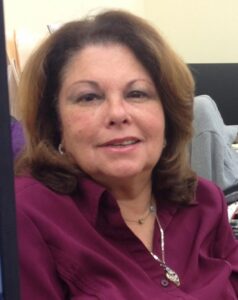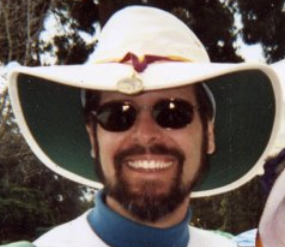Interview with Author David Gerrold of “Star Trek” and many other shows 6/20/20

David Gerrold is a renowned author, screenwriter, producer and more. He first grew to fame writing “The Trouble with Tribbles” for the original “Star Trek” series. He also wrote other episodes and wrote some books about the show, including “The World of Star Trek.” He has published many scifi short stories and novels, as well as co-created “Land of the Lost,” and wrote for “Babylon 5” and quite a few other series. He’s been my Facebook friend for many years. He is very 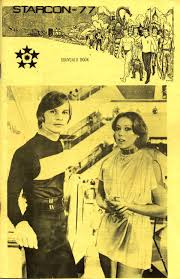 thoughtful, eloquent and passionate when writing about anything, including politics and news. I’m very grateful that he allowed me to send him some questions!
thoughtful, eloquent and passionate when writing about anything, including politics and news. I’m very grateful that he allowed me to send him some questions!
In 1977, after “Star Wars” came out and was a huge hit, especially among scifi and fantasy fans, my friends and I were in love with that groundbreaking movie and its characters. I dressed up as Princess Leia many times. My friend Cindy and I, and my high school boyfriend Tony, went to Starcon 77 in San Diego. I walked into David Gerrold’s panel late, and he proceeded to make fun of my “huge buns.” As a shy teenager, I was both a little embarrassed as well as thrilled that someone so famous, and connected with “Star Trek,” my favorite TV show in the world, would notice me. I had no idea, of course, that years later we’d be Facebook friends and that I’d get to interview him.
Here’s the interview!
1. Thank you for the interview! I knew you had written for Star Trek, but I had no idea you were so young when you did! Before that, had you already been writing scifi? Were you one of these people who just started writing early on, or not? Or did Star Trek just inspire you in a way nothing else had, to write?
I grew up with science fiction. The Van Nuys Public Library introduced me to Robert A. Heinlein, A.E. Van Vogt, Isaac Asimov, Murray Leinster, Groff Conklin’s wonderful anthologies, and too many others to list here. I was reading a book a day, so by the time I wasa 19, I had pretty much scoured almost everything that was available, including back issues of the major magazines and everything I could find in used book stores. And I had been fumbling my way through my own stories for a while as well. But it wasn’t until college that I began to learn how to structure a story and how to phrase a coherent paragraph. Star Trek was a lucky opportunity. I knew science fiction and I knew scriptwriting.
2. You have written for many TV series over the years, but you haven’t written quite as much this century. Is there a reason for that?
That is a long involved story — but the major part of it is that I adopted a little boy in 1992 and put much of my television writing aside so I could work at home and be there to be a full-time dad. I still did a few scripts here and there. Babylon 5 and Sliders were most notable.
3. I was surprised at all of the mention of tribbles in “Star Trek: Discovery.” Do you watch that show? If so, do you like it?
I haven’t seen Discovery. I didn’t know they included tribbles. Nobody at Star Trek ever picks up the phone and says, “Hi, David. What are you up to these days?”
4. Have you seen the “Short Trek” episode about tribbles (second episode -“The Trouble with Edward”)? And if so, what did you think of it? Do you approve of the tribble backstory they created?
No, I have not seen it. The only tribble backstory is that they evolved on a planet with such voracious predators that they had to evolve to reproduce rapidly for the species to survive.
5. By the time “Star Trek: Deep Space Nine” came around, Gene Roddenberry had passed away. How did it come about that you did a tribbles episode (“Trials and Tribble-ations”) for that series? Did you have the idea and submit it, or did they contact you about writing it?
I didn’t do that tribble episode. The entire staff of DS9 collaborated on it and they wrote a brilliant script. The cast and crew did an amazing job. I was invited to be an extra in the episode.
6. Have you watched “Star Trek: Picard?” And if so, what do you think of it?
I haven’t seen it. I’ve been too busy with other things. I hardly watch much television these days. There are a lot of great shows I’ve missed.
7. A lot of fans of the original Star Trek were not too thrilled with the Star Trek reboot movies they made. Did you see them? I thought the first one was “just okay,” the second one was awful, and the third one was pretty good (most like the original). What did you think?
I haven’t seen any of the recent Star Trek movies. So I can’t really comment...
Of the older movies, I thought Star Trek: The Motion Picture was ambitious. I thought The Wrath of Khan was great fun. But after they destroyed the Enterprise in Star Trek III, it wasn’t the same Star Trek for me anymore. Star Trek IV was a very good film, but I missed the original TV series because it wasn’t about villains, it was about exploration and discovery.
8. You’ve written so many different stories and novels, as well as TV. I read an interview with you from the 1980’s where you said that you had to come to terms with the fact that you were probably always going to be known as “the tribble guy.” How many years did it take you to become comfortable with that idea?
I never thought about it until someone asked the question. I do know that the tribbles opened a lot of doors for me. I’m grateful for that. Not every author gets to have that big an impact.
9. I know it’s hard to choose, but which story, book or series do you like the most? Which are you most proud of?
It’s not hard to choose at all. “The Martian Child” is about how I met my son, how I adopted him, and how I fell in love with him and became his dad. That’s the most personal story I’ve ever written and I doubt I will ever write anything that surpasses that.
10. For a scifi fan that is not too familiar with your written work, which story, book or series would be the best to start with?
I would recommend starting with the Dingilliad trilogy — JUMPING OFF THE PLANET, BOUNCING OFF THE MOON, and LEAPING TO THE STARS. From there, the newest book, which takes place in the same universe, HELLA.
11. What was the first book you ever read (if you remember)?
The first science fiction book was Rocket Ship Galileo by Robert A. Heinlein. Before that, Dr. Dolittle, Mary Poppins, Freddy The Pig.
12. Which author had the most influence on your writing?
Probably Heinlein, but also Harlan Ellison and Theodore Sturgeon.
13. You write a lot of Facebook posts, many of them about politics/news. Have you ever had any political essays published elsewhere?
I’ve been quoted and published in a lot of places. I did columnns in Starlog and Future Life that touched on political issues.
14. Since you do write a lot online…do you think that this writing ever detracts from your wanting to write books or stories? If you get an idea, for instance, how do you know whether it’s something you want to talk about on Facebook or put into a novel (or do you sometimes do both)? I know that you started writing long before the internet, so I’m curious if you think there is any difference in how your writing is affected by being on the net or not?
Social media is a necessary connection to other people. Other people are source material — how they speak, act, think, and feel.
It’s also valuable research, I have a lot of skilled people on my friend list who will share a lot of interesting insights.
15. On that same note… Many people find the net or social media distracting from work. Do you?
No.
16. Do you read all of the comments on your Facebook posts (or any)?
I skim most threads. I read the longer comments because those are usually substantial.
17. What writing are you doing right now (what are you working on)?
I’m working on A NEST FOR NIGHTMARES and HELLA II.
18. What TV shows do you watch for fun now?
Mostly, I’m watching movies.
19. On Facebook you’ve often mentioned you like redheads and chocolate. I completely understand the chocolate part. Why redheads (if there is a reason)?
It’s a tribute to someone who once made a huge difference in my life.
20. Which is your favorite chocolate?
Chocolate.
David Gerrold’s Website
Other Star Trek Interviews and Reviews
Back to the Main Interviews Page

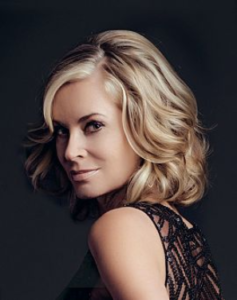
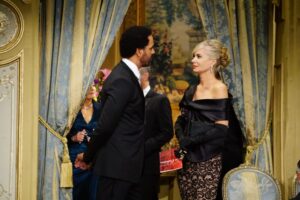
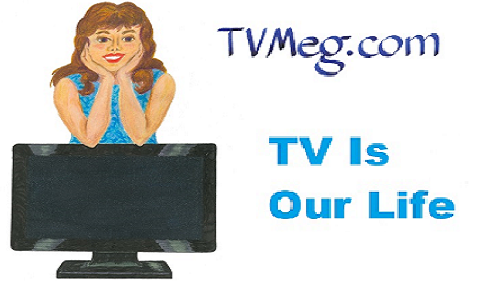


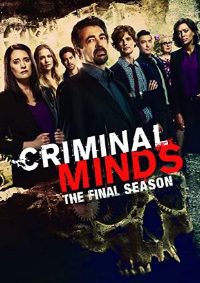
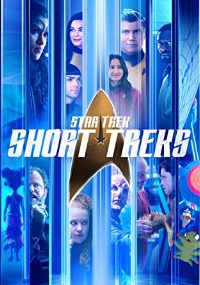
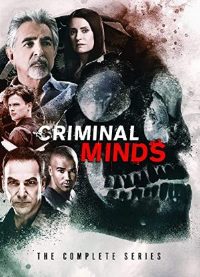
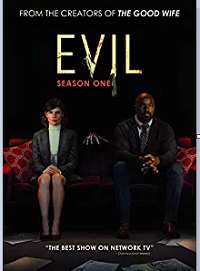
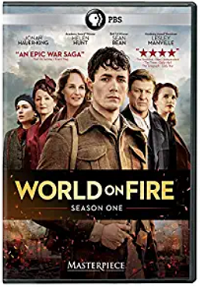
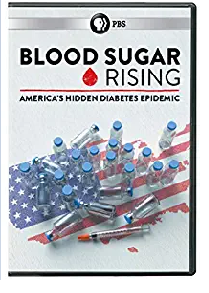
![Police Squad: The Complete Series [Blu-ray] DVD cover](http://tvmeg.com/wp-content/uploads/2020/06/policebluray.jpg)
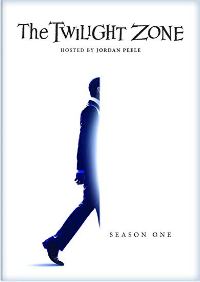



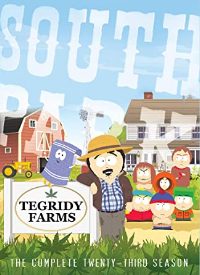



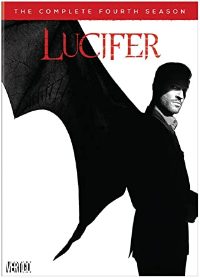
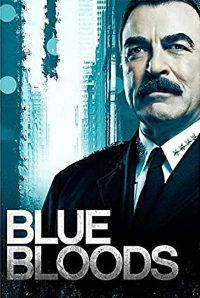

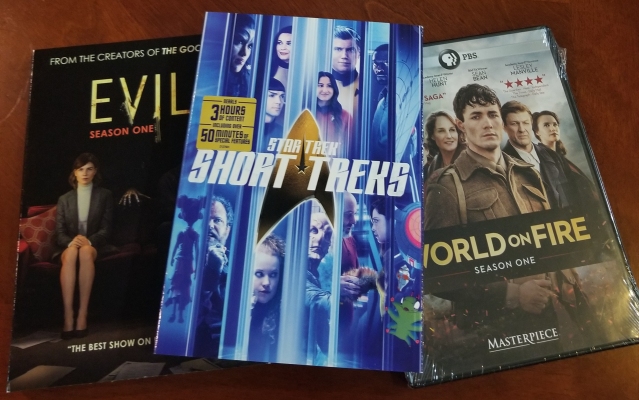
 I have to apologize once more for not writing in this blog. My last year of taking classes just really made me too busy for anything else. Oh, I wrote a million blogs in my head, but when it came to actually writing them here….that was the problem. I will try to do better now that I’m working full time on the site again!
I have to apologize once more for not writing in this blog. My last year of taking classes just really made me too busy for anything else. Oh, I wrote a million blogs in my head, but when it came to actually writing them here….that was the problem. I will try to do better now that I’m working full time on the site again!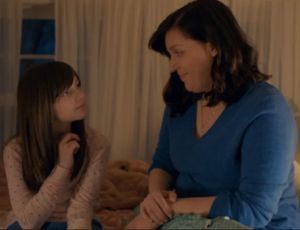
 peech. I feel bad for the actors that had to pretend they won, and then they didn’t win. Yikes. Many of the actors this year mentioned the “Black Lives Matter” campaign or alluded to it in their speeches. What bothered me, though, was the lack of applause. I could ALMOST believe that the ceremony was real, except for that. Canned applause would have been better, I think. Next year, if it must be virtual, how about renting out a giant theater, inviting the public, making everyone sit apart, with masks, and then just show them the virtual show, and record their applause? That would be more authentic, at least.
peech. I feel bad for the actors that had to pretend they won, and then they didn’t win. Yikes. Many of the actors this year mentioned the “Black Lives Matter” campaign or alluded to it in their speeches. What bothered me, though, was the lack of applause. I could ALMOST believe that the ceremony was real, except for that. Canned applause would have been better, I think. Next year, if it must be virtual, how about renting out a giant theater, inviting the public, making everyone sit apart, with masks, and then just show them the virtual show, and record their applause? That would be more authentic, at least.
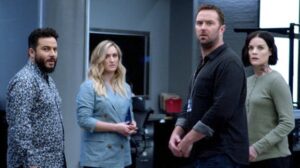 W, which I like, as well As “The 100,” “In the Dark,” and “Burden of Truth,” all on The CW. Also, I’ve been watching “Blindspot” on NBC and “Grantchester” on PBS. Lastly, I still watch “Full Frontal with Samantha Bee” on TBS; and “Real Time with Bill Maher” and “Last Week Tonight with John Oliver,” both on HBO. Besides all that, I try to keep up on “
W, which I like, as well As “The 100,” “In the Dark,” and “Burden of Truth,” all on The CW. Also, I’ve been watching “Blindspot” on NBC and “Grantchester” on PBS. Lastly, I still watch “Full Frontal with Samantha Bee” on TBS; and “Real Time with Bill Maher” and “Last Week Tonight with John Oliver,” both on HBO. Besides all that, I try to keep up on “



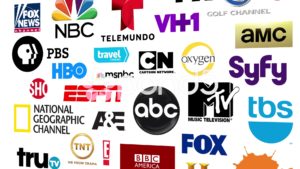
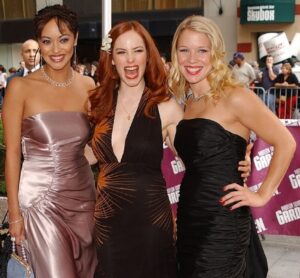
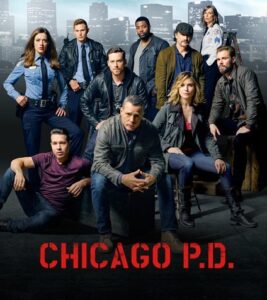



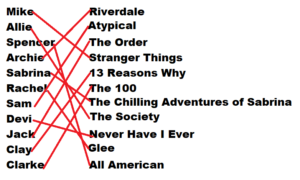




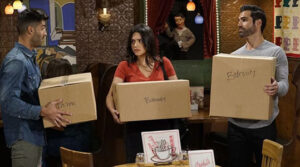


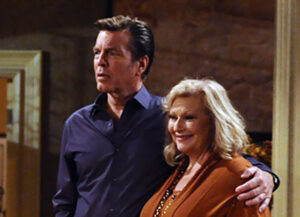

 thoughtful, eloquent and passionate when writing about anything, including politics and news. I’m very grateful that he allowed me to send him some questions!
thoughtful, eloquent and passionate when writing about anything, including politics and news. I’m very grateful that he allowed me to send him some questions!

